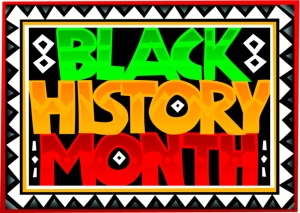With many thanks to Akyaaba Addai-Sebo, since 1987, the UK has been celebrating BHM in the month of October. Schools up and down the country usually put up displays and encourage students to do a piece of writing, usually focusing on Martin Luther King Jr, Rosa Parks, or others of that ilk. Should BHM continue to be as it is, or should it be, as many would like it to be, integrated into average history lessons and curricula?
Currently in most schools, history lessons focus on a certain selections of history. We in England learn about the Tudors, the Victorians, the two World Wars, how the Allies triumphed, and how the Holocaust was one of the worst events in history. We even learn bits about the French Revolution and the Middle Ages including the Black Death and the Magna Carta. Sure there have been Black people living in Britain for hundreds of years, they played a part in the two World Wars and struggled for equality, but is that any reason to introduce more Black History? Isn’t one month enough?
At the end of the day, England is a White Protestant country. Don’t let Stratford Westfield or Peckham fool you, of the 80 million people living in Britain, Black people only make up 3.5% (1.8million people). To put that number into perspective, you can fit almost all of the UK’s Black people into the built up areas of West Yorkshire. How then on that basis can such a small minority justify changing how history is taught to everyone in the UK? Majority rules right?
Black History Month was often a time growing up where more questions were directed to you, and if you didn’t know an answer, you were likely to be laughed at during break, ‘I thought you were black’. It was unwanted attention and pressure to pay extra attention and raise your hand a little bit more. It wasn’t a time of pride, it was a time of wondering why people were looking at you more than usual. The content of the lessons were a welcome break from hearing about Isambard Kingdom Brunel and Sir Walter Raleigh. Growing older, and reflecting on the things we were told during BHM, questions begin to form.
There is a heavy focus on the 1960‘s Civil Rights movement in America and slavery, in comparison to mention about the Empire Windrush in 1948. I remember going to history class one day, and the teacher told us to stack tables on top of each other, and line them in a semi-circle around the classroom. We were then instructed to lie, one under and one on top of the tables to simulate how slaves were transported to Brazil, America and the Caribbean. As much as it was ‘interesting’ and somewhat informative, growing older, we start to realise that these few events only show a particular selection of Black History. For example, Brazil is hardly ever mentioned as the country which received the most slaves from West Africa. Black British history? John Blanke, Mike Fuller or John Edmonstone? Never.
First of all, the way BHM is at the moment, it lumps together African, African-American and Afro-Caribbean history into one. There is no real distinction between the many differences between these different groups, it’s a broad and fragmented history or people with dark skin. It doesn’t take into account that the experiences in Black America, were and still are very different from the Caribbean, Brazilian, British and African. But of course in one month there is no time to get into things into detail. Really? No time?
We spend 2 years studying for GCSE History exams, but it seems as though it’s more important to remember how many wives Henry VIII murdered, than how many people perished on those slave ships in the Middle Passage. Knowing other trivia like the disgusting ‘Queen Elizabeth I had 1 bath a year’ is absolutely pointless and currently trumps other relevant facts and events such as the evidence that the palace in the Kenyan city of Gedi had indoor toilets and piped water controlled by taps. Even if these facts aren’t deemed relevant, wouldn’t time being best served by learning about why Britain has become so multicultural, and the reasons behind many people wanting to Keep Britain White?
End of Part 1…

